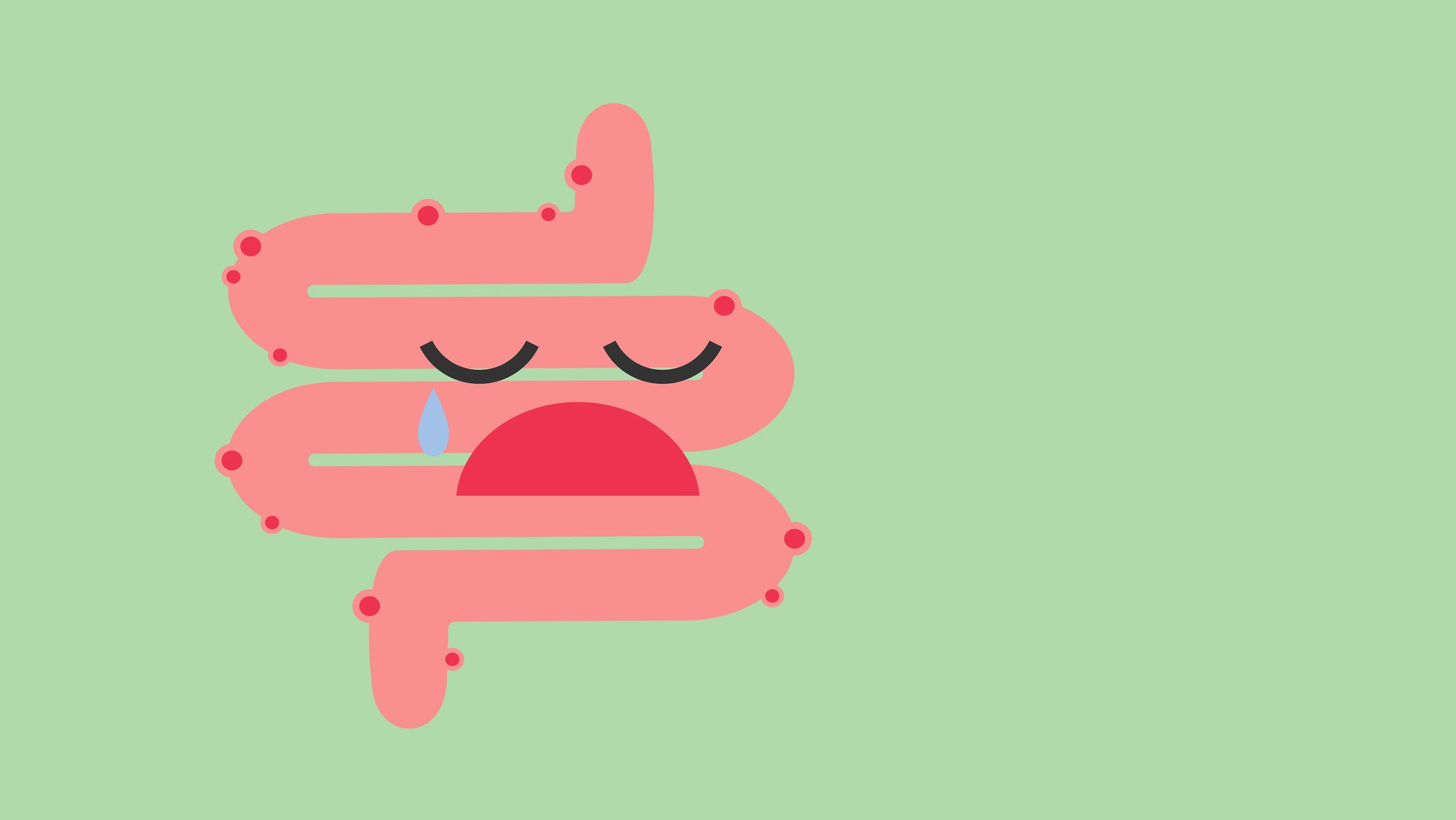

· By Alicia Stacey
Diverticulitis 101: What You Need to Know
Diverticulitis is one of the most common gastrointestinal issues, especially in women and people 40 years of age or older. While it may be a huge setback for people who suffer from it, the silver lining is that you can drastically reduce your chances of getting it with some simple diet and lifestyle changes.
But let’s start from the beginning—here’s everything you need to know about what diverticulitis is, and how to treat and prevent it.
What is Diverticulitis?
Diverticulitis is when you have diverticula that are inflamed or infected. What are diverticula? They’re pockets that form from weakened spots in your intestinal lining along the end of the small intestine and entire large intestine. Having diverticula in the intestine is referred to as “diverticular disease.” In many cases, people have diverticula and aren’t even aware unless they have symptoms of diverticulitis. Which leads us to...
Symptoms of Diverticulitis
The primary symptom of diverticulitis is a constant pain in the abdomen, typically in the lower left part, that lasts several days. It can sometimes be accompanied by nausea and vomiting, fever, and constipation, as well as diarrhea.
In many cases, people have diverticula and aren’t even aware unless they have symptoms of diverticulitis.
When Should You See a Doctor About Diverticulitis?
Once you notice you’ve been having abdominal pain, we recommend seeking medical attention. In severe cases, that pain could be indicative of peritonitis, which is when a diverticula ruptures and its contents spill into the intestinal cavity. It’s as serious as it sounds; it’s a medical emergency that requires surgery, so it’s important to diagnose—or rule that out—as early as possible.
You should also see a doctor if you have symptoms of diverticulitis and have already been diagnosed with diverticular disease.
What Causes Diverticulitis?
Your Diet
Diet plays a major role in the development of diverticulitis. Eating a diet that’s low in fiber and high in fat can affect how efficiently your intestines work, producing weak points that can develop into diverticula, and possibly diverticulitis.
Genetics
While there hasn’t been a specific gene linked to diverticulitis, having a direct relative who’s dealt with the disease can put you at higher risk of getting it. It also disproportionately affects women under age 40, but men and women older than that get it at about the same frequency.
Medications
NSAIDs—such as naproxen, ibuprofen, and aspirin—can weaken the intestinal lining with prolonged use, which can lead to diverticula and diverticulitis.
How Can You Treat Diverticulitis?
The treatment of diverticulitis depends on how severe your case is. Here are the most common ways that diverticulitis is treated once diagnosed.
Watch Your Fiber Intake
This is going to get complicated, so bear with us for a second. Once you’ve been diagnosed with diverticulitis, you should decrease your fiber intake. That’s because your colon is inflamed, so it’s better to limit the activity down there while things get sorted out.
On the other hand, to prevent diverticula and diverticulitis, you should eat more fiber. This will promote healthy function in your gut, lowering your risk of weak spots in your intestine that could form diverticula. A fiber supplement like Bellway’s all-natural fiber blends can help keep you on track but, as with all supplements, confirm with a doctor that it's right for you.
To prevent diverticula and diverticulitis, you should eat more fiber.
Antibiotics
Given that diverticulitis is an infection, your doctor will likely prescribe antibiotics to treat it. Be sure to follow their directions for taking it.
Pain Relievers
Your doctor may suggest or prescribe pain relievers to manage any pain you have from diverticulitis.
Surgery
In severe cases, diverticulitis can lead to intestinal abscesses, fistula, obstructions, or perforations that can only be treated with surgery.
While treatment of diverticulitis may sound intense, there are easy preventive measures you can take to avoid episodes of the disease, such as:
- Exercising at least 30 minutes a day for 4 days each week
- Drinking more water
- Eliminating or reducing the amount of fatty or processed foods that you eat
- Not straining when you poop
- Avoiding laxatives or enemas, unless prescribed by your doctor
